Kinjal Jain
Detecting Community Sensitive Norm Violations in Online Conversations
Oct 09, 2021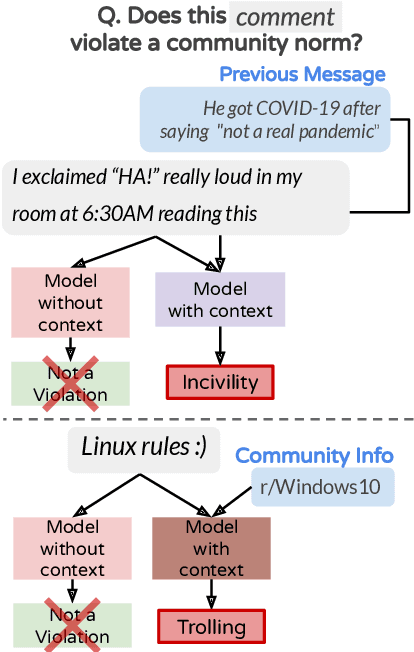
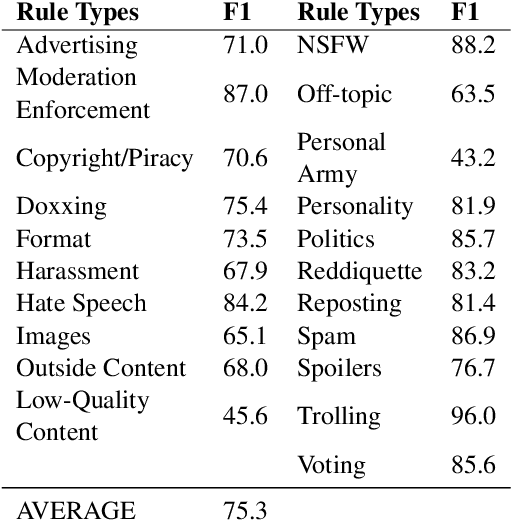
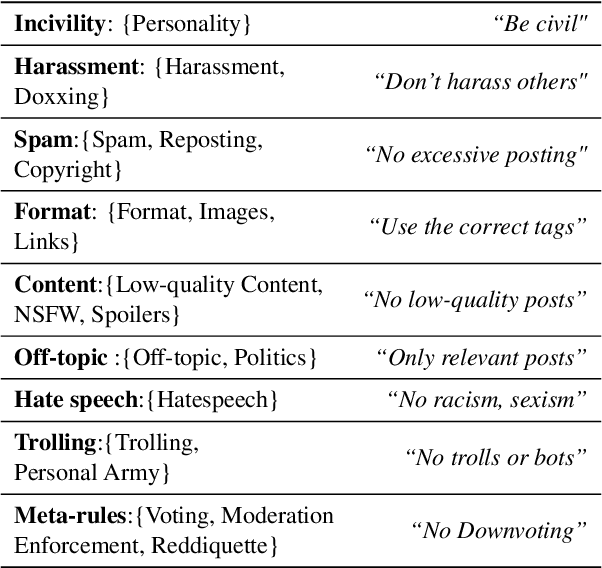
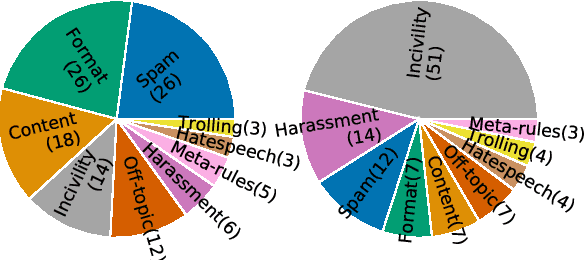
Abstract:Online platforms and communities establish their own norms that govern what behavior is acceptable within the community. Substantial effort in NLP has focused on identifying unacceptable behaviors and, recently, on forecasting them before they occur. However, these efforts have largely focused on toxicity as the sole form of community norm violation. Such focus has overlooked the much larger set of rules that moderators enforce. Here, we introduce a new dataset focusing on a more complete spectrum of community norms and their violations in the local conversational and global community contexts. We introduce a series of models that use this data to develop context- and community-sensitive norm violation detection, showing that these changes give high performance.
On Optimizing Human-Machine Task Assignments
Sep 24, 2015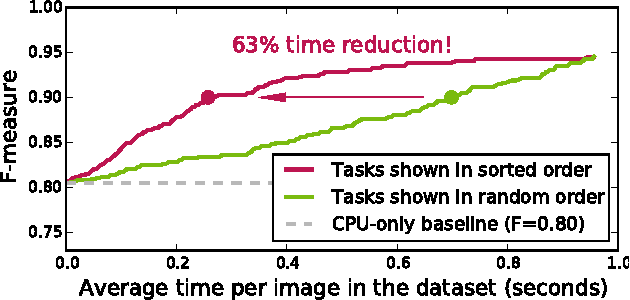
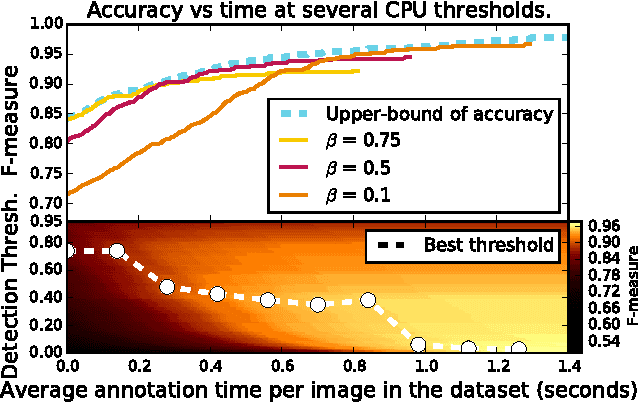
Abstract:When crowdsourcing systems are used in combination with machine inference systems in the real world, they benefit the most when the machine system is deeply integrated with the crowd workers. However, if researchers wish to integrate the crowd with "off-the-shelf" machine classifiers, this deep integration is not always possible. This work explores two strategies to increase accuracy and decrease cost under this setting. First, we show that reordering tasks presented to the human can create a significant accuracy improvement. Further, we show that greedily choosing parameters to maximize machine accuracy is sub-optimal, and joint optimization of the combined system improves performance.
 Add to Chrome
Add to Chrome Add to Firefox
Add to Firefox Add to Edge
Add to Edge